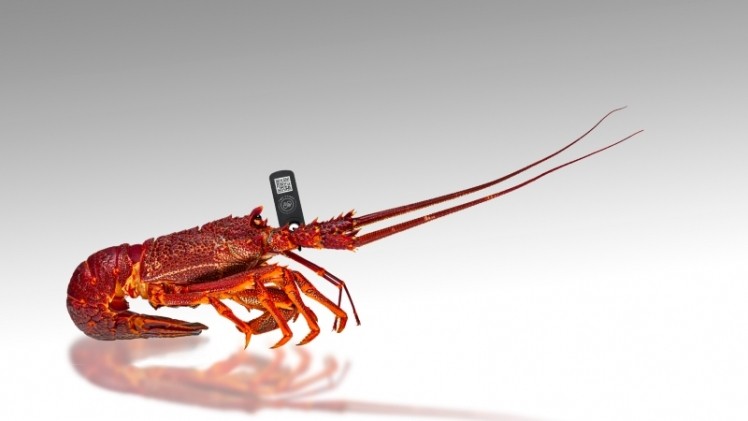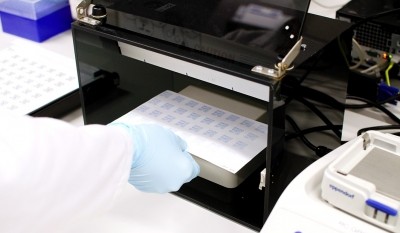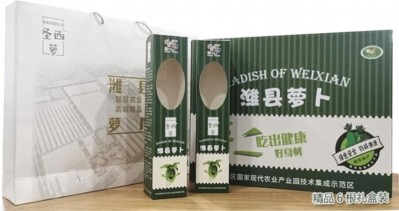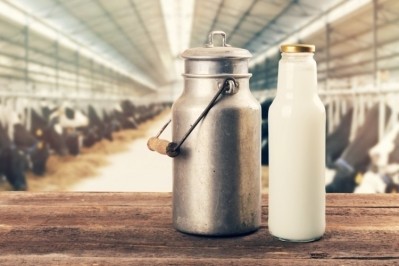Expediate exports to China with blockchain? Australian outfit seeks to speed-up ‘COVID-19-free’ shipments

Two Hands’ platform and technology begins with a tamper-evident smart tag, which has a multitude of data about the product linked to it at the very beginning of the supply chain, the fishermen or farmers.
“Many blockchain platforms and applications are available globally now, but most lack integrity due to gaps in the supply chain between the source and the consumer – we have removed all the middlemen from the supply chain, plugging these gaps, and it all starts with our tamper-evident smart tags,” Two Hands Founder and CEO Greg McLardie told FoodNavigator-Asia.
“When the food item, let’s say it’s a rock lobster, is brought to port, we immediately electronically weigh it, and input this information along with colour, quality, fisherman information, pricing and so on onto our digital marketplace to be scrutinized and users to place orders online. This info is linked with the smart tag – the tag is locked on and tamper-proof, and if anyone tries to remove it, it will be destroyed.
“We then pack the lobster in Australia and ship it to Pudong, China – from there, we have people who pick it up from customs and send it directly to the end-user, whether this be a consumer or chef looking for seafood to cook.
“This way, we have cut off all the middle people whether it be wet market sellers, wholesalers, importers, last mile distributors – and this way there is much more integrity in the food chain.”
Two Hands is also working on approaching the governments in Australia and China to work out how to incorporate their technology into the latter’s new requirement for all imported fresh foods to be tested for COVID-19, especially seafoods and meat.
“The Chinese government has basically moved at warp speed to improve food safety and security in China, including doing COVID-19 tests on foods which are holding up exports from everywhere including Australia, though I must say it’s for the right reasons,” said McLardie.
“What we believe is that blockchain can provide the safety and traceability to make this process faster, so we want to work with the governments to have this testing done in Australia, in advance, and basically pre-authenticate the exports.
“This pre-authentication information can then be put into the blockchain platform, the exported seafood or meat or other item tagged with the negative result, then shipped to China where it can be scanned, and they would not need to do COVID-19 testing again. This would help fresh foods pass through customs more quickly and run less risk of going bad before even entering the country, and the results are reliable as long as the tag is not tampered with.
“China has previously expressed a willingness to work with blockchain, and we have already started discussions with CSIRO here in Australia to figure our how to get connected to the Chinese government. We have seen examples in Australian dairy using blockchain to get rapidly released from Chinese customs and want to piggyback on this work to use our tech for meat and seafood exports.”
The middleman dilemma
McLardie added that the reason he first started Two Hands was when a group of leaders from the Southern rock lobster industry approached him for a technological solution to their concerns about middlemen getting ‘too powerful’ in the industry.
“I figured that the way forward was to get rid of these middlemen and connect directly with consumers – this also turned out to be a more efficient way to make the supply chain more ethical by ensuring a better life for the fishers, and to increase transparency and eliminate food fraud as any break in the blockchain would signal something was wrong with the food.”
As for why Two Hands also expanded its technology into the meat sector, McLardie added that this was also due to the large costs middlemen are causing the industry.
“We’ve found that for seafood, middlemen take a large chunk of the supply chain costs at no less than 20%, but for meat this number is way in excess of 20% - so this platform can definitely benefit both sectors and provide farmers with better prices too,” he said.
At present, Two Hands is running its pilot with 17 high-end hotels such as the Waldorf and Shangri-La in Shanghai, and has also just secured a contract with the Mariott Group, but McLardie stressed that the end goal is to bring this technology even further down the chain to consumers worldwide.
“In another 18 months to two years, DNA is going to come onto the scene and will make a big impact – I believe that we will be able to go up to the level of having the individual meat or lobster DNA added into the blockchain, and when it reaches the consumer he or she will be able to have a sensor to test the DNA of what they received to make sure they got what they paid for,” he said.
“We believe that our technology can eliminate food fraud globally. We know that the United States records some 77 million food poisoning cases and 5,000 deaths annually – imagine how much higher this number is in China, and elsewhere. It is definitely a global issue.”
“This is why food authentication needs to happen all throughout the supply chain, and not just for raw or frozen foods. It needs to extend to processed and packaged foods as well, and in order to make this work, all companies – whether MNCs or small producers – must get on board to provide transparent information.”
Future goals
Moving forward, Two Hands is completing its product market fit this year after which it will be listing on the Australian Stock Exchange (ASX).
The team also has an ongoing ‘regional’ pilot concept. Here, it is working with the region of Gippsland in Australia where there are hundreds of artisanal food producers to pick up products from their farm/factory and tagging these accordingly so end-users can drill down to the region and producer when making a purchase.


















